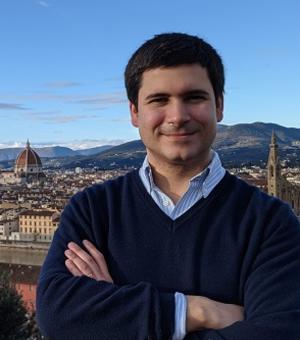Dr Nuno Castel-Branco
I am a historian of science, culture, and religion in early modern Europe and its global expansion.
I completed my PhD in the history of science at Johns Hopkins University in 2021 after doing an MSc in Physics from the University of Lisbon. I am currently a Research Fellow at All Souls College, Oxford. In the past years I worked at Harvard University’s Villa I Tatti, in Florence, and at the Max Planck Institute for the History of Science in Berlin. My first book, The Traveling Anatomist, on Nicolaus Steno, is under contract with the University of Chicago Press. My articles have appeared at Annals of Science, Early Science and Medicine, Renaissance Quarterly, among others. I also write for broader audiences and you can find my essays in places like the Wall Street Journal and Scientific American.
Research Interests
My work examines the social and intellectual intersections between areas of knowledge, especially the life sciences, mathematics, and religion in early modern Europe and its global expansion.
My first book, The Traveling Anatomist, restores the itinerant career of the anatomist Nicolaus Steno (1638-1686) to its rightful place in the history of science. Although known today as the founder of modern geology, in the early modern period Steno became a successful anatomist by introducing ideas from mathematics, chemistry, and physics into anatomy. My book explains the intellectual anxieties that led Steno to work on mathematics and other disciplines. By placing Steno’s ideas in context, I found that his engagement with the mechanical philosophy was much broader than following ideas promoted by Descartes and his followers. My work also unveils social links between Steno’s ideas and the diverse settings where he worked: goldsmith workshops, universities, and princely courts. I argue that this variety of approaches strongly benefitted from his ability to forge deep friendships with scholars, princes, and women. In short, my book uses Steno as a tour leader for science and medicine in mid-seventeenth-century Europe. My research on Steno has benefitted from the generous support of fellowships by Fulbright, The Harvard University Center for Italian Renaissance Studies, the Max Planck Institute for the History of Science, and the Huntington Library, among others.
A unifying theme that runs across my research is the role of friendships in the history of knowledge. My second project explores how mathematicians, anatomists, and patrons cooperated in the early 1600s. A poorly known actor is Hendrick Uwens, a Jesuit missionary who taught anatomy in a mathematics course in Lisbon in the early 1640s before sailing to the Islamic Mughal empire in northern India. This project builds upon my previous research on early modern Italy and the Iberian world. Part of this research was published in the article 'Material Piety' in Renaissance Quarterly, where I argue that religious culture was at the roots of intellectual production in southern Europe. This article was elected in 2023 as Best Article in Portuguese History by the Association for Spanish and Portuguese Historical Studies.
My interests in the historical interactions between science and religion also led me to co-direct a working group at the Max Planck Institute on the topic of religious experience in the history of science.
For updated descriptions of my research and other scholarly activities see my personal webpage.
You can follow me on LinkedIn.




